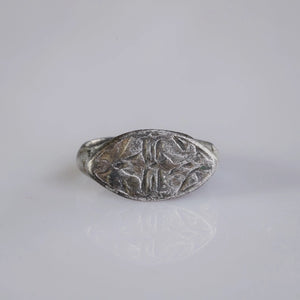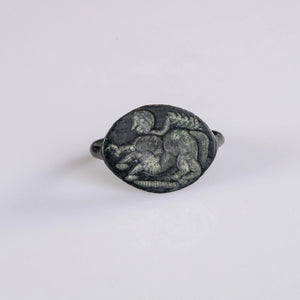Interesting facts
When we think of Roman emperors, grand images of military might, vast conquests, and sprawling architectural wonders often come to mind. But within the corridors of imperial power, intelligence manifested not only through sword and senate but also through thought, philosophy, and reflective governance. Among the many rulers who ascended to the throne of the Roman Empire, the question arises: who was the most intelligent Roman emperor? The answer to this is not merely a measurement of cleverness or political acumen but a deeper appreciation for wisdom that informs decisions, shapes societies, and endures through ages. And in this light, Marcus Aurelius emerges as a remarkable figure, often celebrated as the philosopher-king, whose intellectual and moral legacy continues to resonate profoundly even millennia later.
Marcus Aurelius: A Philosopher-King
Born in 121 CE, Marcus Aurelius ascended to power during a period fraught with significant challenges for the Roman Empire. External threats loomed large, internal strife threatened stability, and the monumental task of governing a sprawling empire across continents demanded not just political skill but steadfast wisdom. Yet, unlike many of his predecessors and successors, Marcus distinguished himself not only by his military leadership but by an enduring commitment to philosophy, especially Stoicism. This wasn’t a mere academic pursuit or a fashionable trend; it was a guiding principle that shaped his reign and his responses to life’s inevitable adversities. His personal writings, compiled in what we now know as "Meditations," offer a vivid and intimate window into the mind of a ruler deeply engaged in the art of self-reflection, ethical conduct, and rational deliberation.
Stoic Philosophy: The Heart of His Leadership
The intellectual achievements of Marcus Aurelius carry particular significance because they meld wisdom with rulership. Instead of viewing governance as simply the exercise of power or dominance, he regarded it as a solemn responsibility demanding virtue, reason, and humility. This marks a profound shift away from traditional depictions of emperors as mere autocrats, tyrants, or political strategists seeking personal gain. Marcus embodied what it truly means to lead through moral integrity, skillfully balancing the immense demands of empire with the pursuit of personal and state excellence. His reign serves as a powerful example that intelligence in leadership transcends smart tactics; it is about cultivating a measured, virtuous, and thoughtful presence at the helm of history.
Experience History: Wear the Past
If you've ever been fascinated by the deep history and intellectual legacy left by figures like Marcus Aurelius, you might appreciate owning an artifact connected to that era. At Aurora Antiqua, one of their standout pieces is the 'Auriga' - Roman Silver Intaglio Ring, an ancient treasure with a story of its own, connecting you directly to the past. Discover more about its heritage and beautifully preserved details at auroraantiqua.store.

Why Intelligence Matters in an Emperor
But why, one might ask, is intelligence in an emperor so valuable? The Roman Empire, with its vastness spanning continents and embracing a mosaic of cultures, presented uniquely complex challenges. Decisions demanded not just immediate political expediency but far-reaching consideration that would influence social stability, justice, and the common good across diverse peoples. An emperor like Marcus Aurelius, rooted deeply in Stoic philosophy, sought to govern by principles that upheld clarity of thought, ethical rigor, and endurance. His personal reflections reveal a man wrestling with the heavy burdens of power, striving tirelessly to act in ways that would be truly beneficial to his subjects while maintaining a profound awareness of his own human limitations.
Stoic philosophy is at the very heart of Marcus Aurelius' intellectual legacy. Originating with Greek thinkers like Zeno of Citium and later expanded by renowned philosophers such as Epictetus and Seneca, Stoicism emphasizes the cultivation of self-control, acceptance of fate, and unwavering commitment to virtue. For Marcus, this was never an abstract intellectual exercise but a practical guide to life. In tumultuous times, when deadly plagues ravaged cities and barbarian incursions threatened Rome’s borders, his meditations were a means to preserve clarity, calm, and a sense of purpose under pressure. He famously wrote: “You have power over your mind – not outside events. Realize this, and you will find strength.” This perspective shaped a remarkable legacy, where an intellectual emperor confronted the chaos of his era with steady reason and inner resolve.
Intellectual Contributions Beyond Marcus Aurelius
Of course, other Roman emperors displayed notable intellectual qualities as well, though often in different ways. Augustus, Rome’s first emperor, was a masterful political strategist and architect of propaganda, crafting frameworks that endured for centuries and shaped the empire’s very shape. Hadrian, known for his love of the arts and architecture, showed a cultured and curious mind through his extensive travels and the commissioning of iconic landmarks such as Hadrian’s Wall in Britain. However, Marcus Aurelius stands apart not simply because of administrative skill or grand projects, but due to the profound personal philosophy that permeated his reign—a unique depth that intertwined thoughtful reflection with heartfelt humanity. This rare dimension invites a renewed understanding of intelligence as much more than cleverness: it is wisdom active in life and leadership.
The Blend of Politics and Philosophy
The blending of politics and philosophy in Marcus Aurelius’ life urges us to reconsider the true meaning of intelligence in a leader. It is not limited to quick wit, political savvy, or strategic planning. Rather, it encompasses a deep understanding of oneself and the world, an enduring commitment to goodness, and a willingness to act consistently on those ideals, even when difficult. His "Meditations" remain timeless, quoted and studied by philosophers, historians, psychologists, and leaders alike across centuries. They offer profound insights into how to cope with adversity, maintain ethical standards in leadership, and nurture resilience amid relentless pressures—lessons as relevant to ancient Rome as they are to modern-day struggles.
A Lifelong Journey of Wisdom
In this nuanced and rich sense, Marcus Aurelius’ intelligence was not a static achievement but a constant, dynamic journey. It was an ongoing effort to live the cardinal virtues: courage, justice, temperance, and wisdom—all while navigating the immense responsibilities of being an emperor. Throughout his writings, themes recur: the inevitability of mortality, the fleeting nature of worldly fame and power, and the paramount importance of service over self-interest. These insights peel back the layers of imperial grandeur to reveal a deeply human leader, one profoundly aware of his place in the natural order and committed to the well-being of his people.
It’s worth noting that Marcus Aurelius did not become a philosopher-king by accident or mere happenstance. His education was rigorous, nurtured from a young age by prominent tutors and scholars, steeped in philosophy and rhetoric. This early intellectual foundation equipped him with the tools to govern thoughtfully. But his writings also reveal humility; he never claimed to possess final answers or infallible wisdom. Instead, he engaged in what feels like a lifelong, heartfelt dialogue with himself and the Stoic tradition. His example teaches that true intelligence embraces questioning and constant self-improvement, rather than rigid certainty.
Considering the historical context of his rule also emphasizes the exceptional nature of his intellect. Marcus Aurelius governed during a precarious era. His reign saw persistent military threats along the empire’s northern frontiers against Germanic tribes, requiring his direct strategic command. The devastating Antonine Plague tested the empire’s health, economy, and administrative resilience. Balancing these enormous pressures while remaining grounded in moral and philosophical commitments was no small feat. His ability to integrate reflective thought and decisive action, contemplation and leadership, marks him not merely as an astute ruler but as an extraordinary guardian of Rome’s legacy.
Justice and Fairness in Governance
Marcus Aurelius also sought to exemplify justice and fairness in practice. His legal reforms reflect a thoughtful concern for equity, and his efforts to protect the rights of slaves and provincial subjects show a ruler who valued ethical governance deeply. Intelligence here extends beyond mere cleverness or political maneuvering; it touches the heart and conscience. His example invites us to reflect on the qualities we admire in leaders today—wisdom tempered by compassion, knowledge applied for the common good, and intellectual humility balanced with authority.
How did Marcus Aurelius' Stoic beliefs impact his decision-making as an emperor?
Marcus Aurelius' Stoic beliefs played a pivotal role in shaping his decision-making as an emperor. His commitment to Stoicism provided a framework for confronting challenges with rationality and calmness. Stoicism taught him to focus on what he could control while accepting what he could not, which helped him maintain stability and clarity in governance during turbulent times. It emphasized virtues such as courage, justice, and wisdom, guiding his actions not just for political gain but for the broader good of the empire and its diverse subjects. His decisions often reflected a balance of ethical considerations with pragmatic needs, underscoring his dedication to lead with both heart and mind.
Over the intervening centuries, Marcus Aurelius’ intellectual stature has been recognized not only by scholars but also in popular culture. He stands as one of the rare rulers whose writings provide an intimate, almost conversational glimpse into the mind of an emperor wrestling with the full spectrum of the human experience. This accessibility has contributed significantly to the continuing fascination he inspires, offering a hopeful vision that leadership, even at the highest level, can be infused with virtue and thoughtful deliberation.
Turning briefly to historical sources, "Meditations" stand as the most direct testament to his intellectual life. Unlike official histories or political manifestos, these writings were deeply personal reflections, never intended for public consumption. Their raw honesty and philosophical depth offer a rare, unfiltered connection to the inner world of an ancient emperor. Other sources, such as Cassius Dio’s histories and the often-flawed but valuable "Historia Augusta," provide broader contextual details about his reign, yet they are frequently overshadowed by the enduring power of Marcus’ Stoic thoughts.
There is a subtle, yet profound lesson in Marcus Aurelius’ example for anyone fascinated by the intersection of power and intellect. Intelligence in leadership is not just about amassing knowledge or mastering tactics and rhetoric. It is the cultivation of wisdom, the ability to make ethical judgments, and the commitment to personal growth despite external pressures. Marcus embodies this ideal. His life reminds us that true intelligence is forged in the heat of challenge, nourished by reflection, and proven in the courage to live according to principles.
One might wonder if any other Roman emperor could rival Marcus Aurelius in intellectual stature. Julian the Apostate, for example, was known for his scholarly pursuits and his effort to revive pagan philosophy, challenging the Christianizing empire. Yet, his brief reign and controversial policies left a more complicated legacy. Other emperors displayed intellectual talents in areas like administration, military tactics, or cultural patronage, but few combined these with the philosophical depth and personal introspection that set Marcus Aurelius apart.
It is also interesting to consider how Marcus Aurelius’ Stoic philosophy continues to inspire modern thinkers. The core tenets of controlling what we can, accepting what we cannot, and acting virtuously echo strongly in contemporary psychology, leadership training, and even everyday coping strategies. This trans-temporal appeal attests not only to the universality of his ideas but also to the integrated nature of his intellect and governance.
Legacy Beyond Rome
Embrace Rome's Legacy
Explore NowIn conclusion, while many Roman emperors displayed intelligence in various forms—be it military strategy, political cunning, or cultural patronage—Marcus Aurelius remains distinct for the depth and sincerity of his intellectual life. His steadfast embodiment of Stoic philosophy, unwavering commitment to ethical governance, and deeply personal, reflective writings grant him a unique and lasting place in Roman history. As a philosopher-king, he shaped the fate of the empire and offered a timeless lesson about governing with wisdom, justice, and thoughtfulness.
It is this extraordinary fusion of thought and action, mind and duty, that truly identifies Marcus Aurelius as the most intelligent Roman emperor. His life invites us to perceive intelligence not as cold calculation or mere cleverness but as a living pursuit—a lifelong quest for virtue, wisdom, and humane leadership. This pursuit continues to inspire us, long after the ruins of Rome have faded, echoing across time to offer guidance, strength, and hope.
Marcus Aurelius’ enduring legacy reminds us that intelligence, in its fullest and richest sense, is a harmony of knowledge, ethics, and the courage to live by one’s principles. It is a quality not confined to history’s pages but alive in the challenges and choices faced by leaders and individuals today, wherever they strive to meet life’s demands with a steady heart and a clear mind.
Through his timeless wisdom, captured eloquently in "Meditations," Marcus Aurelius reveals an inseparable blend of intellectual rigor and practical leadership, setting him apart as a unique figure whose intelligence was not just an aspect of his character but the foundation of his reign. This powerful model of enlightened rulership continues to speak to us, reminding us that a truly intelligent leader is one who listens carefully—to reason, to conscience, and to the quiet voice of reflection—amid the tumult of history.

Who is considered the most intelligent Roman emperor?
Marcus Aurelius is widely regarded as the most intelligent Roman emperor due to his deep engagement with Stoic philosophy and his reflective governance style.
What were Marcus Aurelius' main intellectual achievements?
Marcus Aurelius' intellectual achievements include his personal writings known as "Meditations," where he explores philosophy, ethics, and leadership principles.
Can I purchase Roman artifacts that embody such historical significance?
Yes, you can explore and purchase Roman artifacts like the 'Auriga' - Roman Silver Intaglio Ring at auroraantiqua.store, connecting you with history.




